GREENBUSH, MAINE — Deb McLaughlin’s 3-year-old grandson climbed all over her, pleading to play trucks, restless as always. Her 1-year-old foster daughter, who had just woken from a midday nap, sat in her lap, wearing a frilly dress and an irresistible smile. At least McLaughlin doesn’t have to worry about the daily shots of methadone anymore, at least these babies no longer scream and shake for the opioids to which they were born addicted.
This isn’t what McLaughlin envisioned for her empty nest years in rural Maine, trading camping and four-wheeling trips for social-worker check-ins, meetings with behavioral therapists and supervised visits with the drug-addicted biological parents who had to give up these children. McLaughlin’s daughter, who once dreamed of being a lawyer, is one of the millions of Americans addicted to opioids and one of thousands of parents whom state governments have deemed unfit to care for their own children.
“It’s heartbreaking to watch a baby go through withdrawal, and then give that baby back to Mom,” McLaughin said as she prepared snacks in her blue mobile home outside Old Town, along the Penobscot River. “Because she did that to her.”
Heroin threatened to divide them, so this whole family went into foster care
More than 1,000 children are born addicted to drugs in Maine each year, many of whom end up in foster care. The two children in McLaughlin’s home were among the more than 1,800 in foster care across the state in 2016, a nearly 45 percent increase in foster children here since 2011.
The trend in Maine is echoed in foster-care systems throughout the country, especially in rural areas that have been hit hard by addiction. Many are becoming overwhelmed as the opioid crisis has forced more and more children into state custody.
Massachusetts experienced a 19 percent increase in children in foster care between 2011 and 2015. Ohio’s foster population has gone up nearly 10 percent, with more than 60 percent of children in the system because of parental drug abuse. The number of North Dakota children in need of foster care has gone up more than 27 percent.
Foster-care experts say that as the drug epidemic has intensified during the past two years, another rush of children has entered the system. State budgets are stretched, social workers are overloaded, and not enough families are willing to provide children with temporary homes.


